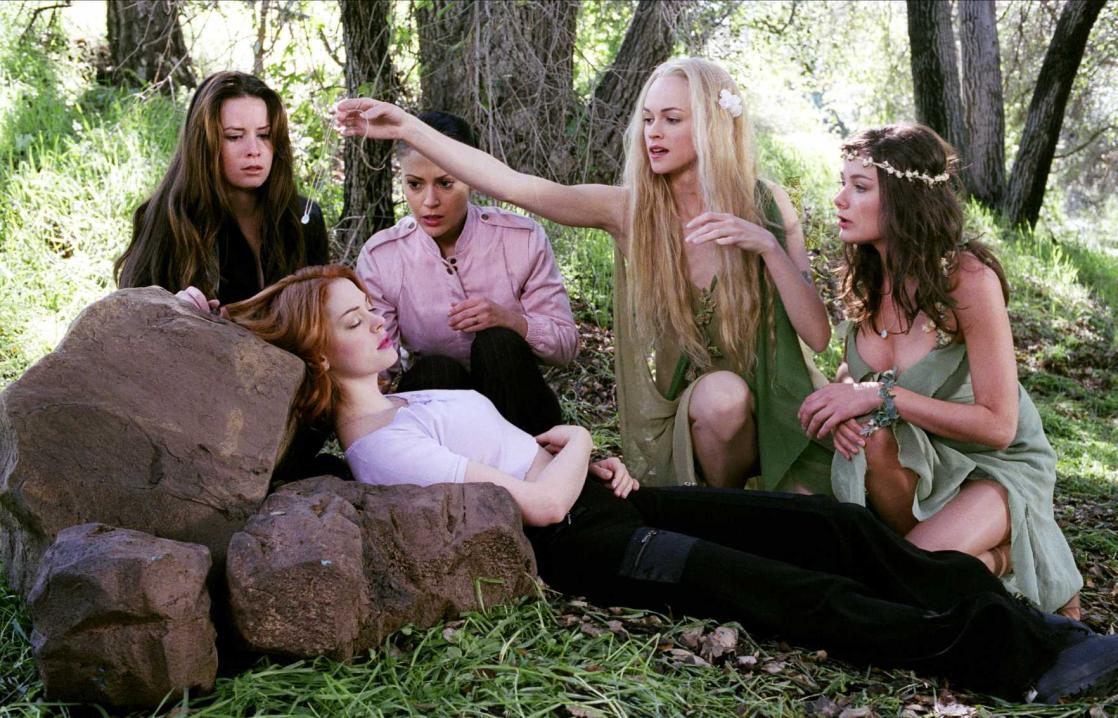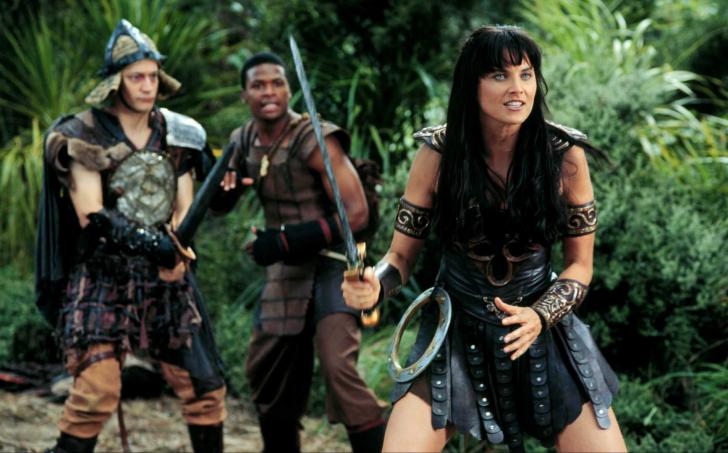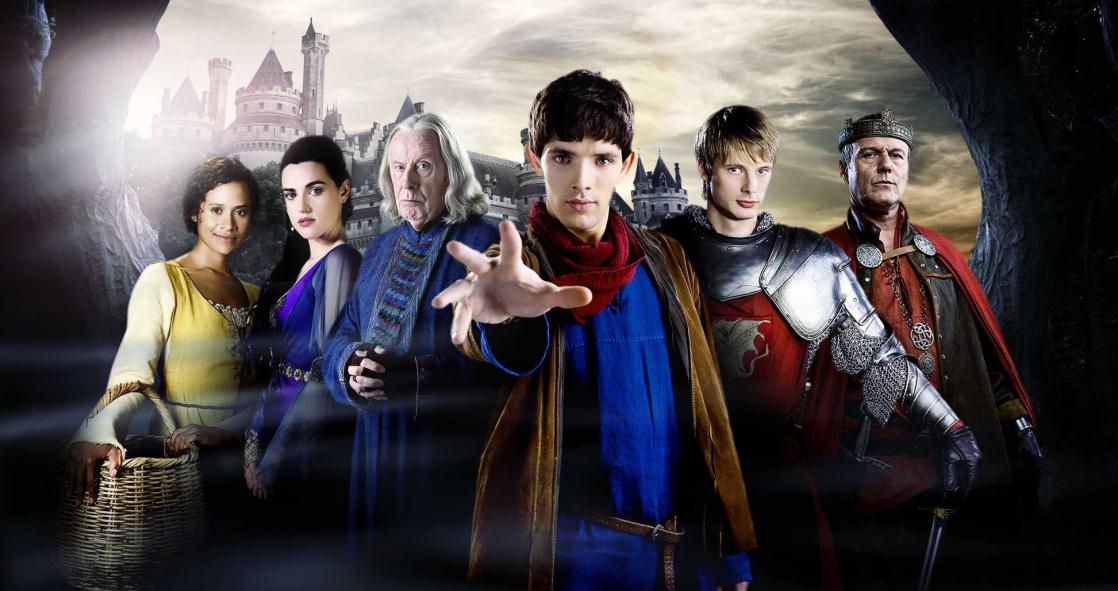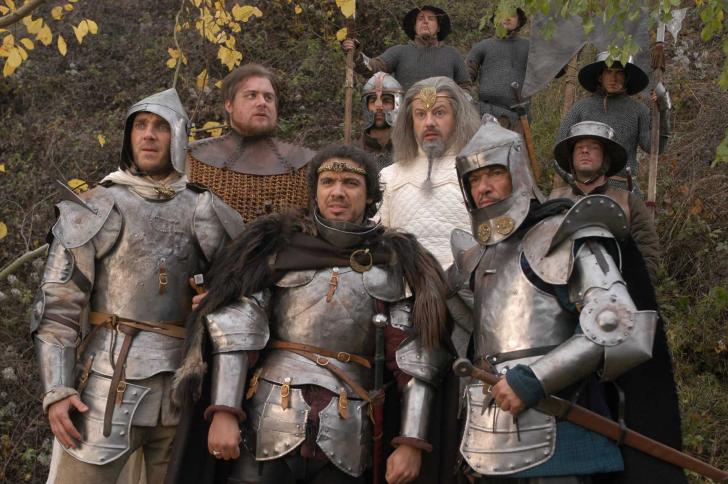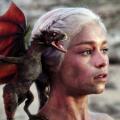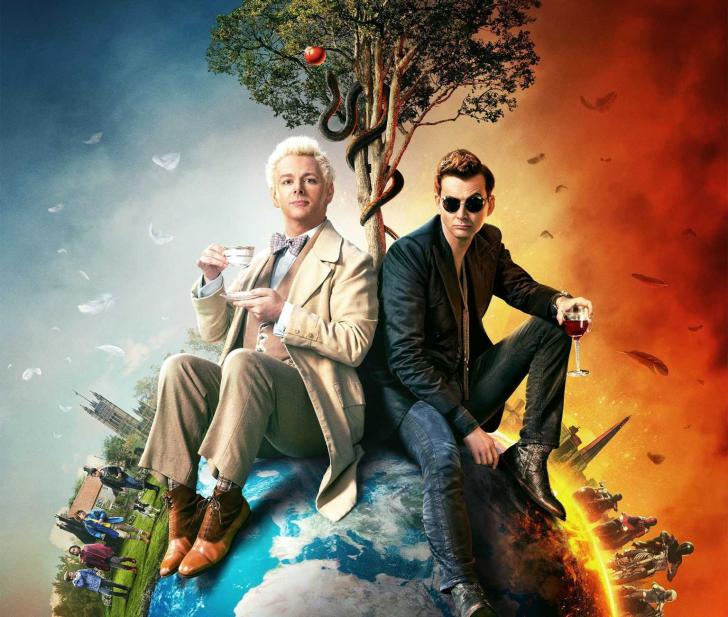Crossover Series
It took some time for fantasy to catch on on television. Since the 1990s, a number of popular series have represented various sub-genres of fantasy. But Game of Thrones’ success was a real game changer.
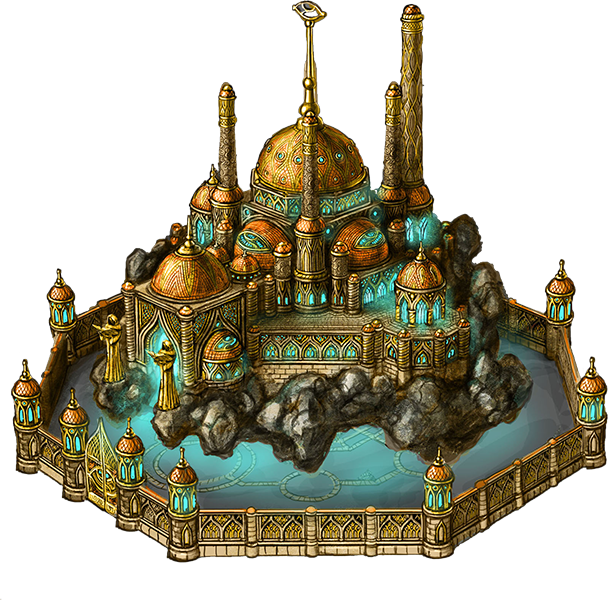
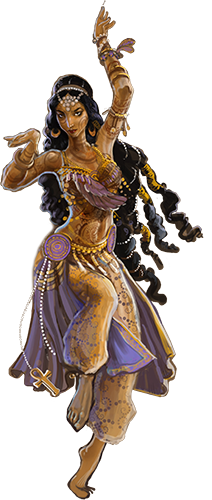
Fantasy series and made-for-TV movies were fairly rare for many years, largely because of the relatively large budgets required to visually interpret enchanted worlds. On top of that, the various examples that started to become more common in the late 1990s were not necessarily identified as being part of a single genre.
Three Trends
Three major trends can be identified in fantasy series from the 1990s:
— Urban fantasy in the Buffy the Vampire Slayer vein (Joss Whedon, 1997-2003). A typical example would be Charmed, a series created by Constance M. Burge and produced by Aaron Spelling. In it, the Halliwell sisters, a charming trio of contemporary witches, vanquish demons and warlocks by invoking the “power of three.” After eight seasons at the turn of the century (WB, 1998-2006), a reboot series has been running since 2018. Fairy-tale fantasy series, which relocate classic tales in a contemporary context, while often adding a romantic twist, can be considered as part of the same category. They include Once Upon A Time (Edward Kitsis and Adam Horowitz, ABC, 2011-2018) and both versions of Beauty and the Beast (1987-1990, 2012-2016).
— A huge number of productions target children and teens. They include Japanese anime, like the interconnected series Dragon Ball (a manga by Akira Toriyama, from 1984, which was launched as an animated TV series in 1986), about Goku, a monkey-tailed, skillful young martial-arts practitioner. It was followed by Dragon Ball Z (1989-1996) and Dragon Ball Super (since 2015), in which Goku has grown up. While the first series leaned more towards humor, the following ones contained considerably more violence. The later series caused considerable controversy when they were first aired in in the late 1980s (and were even censured in some places because of the violence and sexual overtones), but they left their mark on a generation. Since then, manga and anime have become part of the global cultural scene.
— A few series do correspond more explicitly to fantasy sub-genres, including heroic fantasy, with Xena: Warrior Princess (Robert Tapert and John Schulian, MCA Television, 1995-2001); and Arthurian fantasy, with Merlin (Julian Jones et al., BBC One, 2008-2012) and Kaamelott (Alexandre Astier, M6, 2005-2009). The latter is part of the fantasy-parody genre that is quite popular in France.
A Genre that Has Found Its Place
Television was long seen as a popular or low-brow media, a spigot that spewed non-stop entertainment intended only to engage our brains long enough to get us to watch the commercials. So the poor image that fantasy suffered from as compared to “literary” fiction was accentuated by its connection to television.
Let’s take a look, for example, at Xena, a spin-off from Hercules: The Legendary Journeys (MCA Television, 1995-1999). Xena first appeared as a recurrent character before getting her own series. Admitting you’re a fan means acknowledging a taste for an aesthetic that recycles heroic-fantasy clichés (the warrior princess’s costume) that flaunt their kitschy or even campy aspects – the deliberately over-the-top, in-your-face styles created by homosexual communities having fun and making fun of themselves at the same time. It also means going along with scenarios based on classical fantasy that take great liberties with mythology, geography and chronology. The lesbian sub-text surrounding the relationship between Xena and her faithful sidekick, the bard Gabrielle, is one of the series’ selling points. In fact, from early on, one of the great strengths of the speculative genres was to include, albeit discreetly at first, ideological demands that would have been harder to express in more realistic settings. In this way, they have often attracted fan bases that recognized their own outsider status (here, relative to the heterosexual norm) in the productions’ status as cultural outsiders.
Xena is one of the many series coproduced by Sam Raimi, a major name in pop culture, the director of two cult trilogies: the original Evil Dead films and three Spider-Man films. He has also contributed to establishing a coherent image of fantasy series by producing Hercules and Legend of the Seeker (2008-2010), a loose adaptation of the first few volumes of Terry Goodkind’s Sword of Truth. The BBC One series Merlin, aimed at a teen audience, follows those conventions in various ways, including by featuring Anthony Stewart Head in the role of Uther Pendragon. Head is the actor who played Rupert Giles, a librarian and Buffy’s “Watcher” in Joss Whedon’s series, as well as Chiron in the film Percy Jackson: Sea of Monsters (2013). In the BBC One series, which portrays Prince Arthur and his magical advisor as teens, the castles, armor and dragons all follow now-familiar tropes of Anglo-Saxon fantasy.
Kaamelott, a cultural phenomenon in France, is also inspired by the Arthurian legend, but through an atypical prism. The supernatural aspect remains rather discreet, limited to Excalibur’s blazing, the Lady of the Lake’s magical appearances, and the mystery surrounding Percival’s fate. Alexandre Astier – the creator, director, writer, composer and lead actor for the series – wanted to show the trivial side of the legend, the legendary heroes’ daily life and ordinary problems. Arthur’s knights are a friendly, well-meaning bunch of bumblers. Episodes in the first four seasons (called “books”) were each only about three and a half minutes long. Two episodes aired every weeknight over a ten-week season. That humorous-interlude format between two longer shows is extremely popular on French television. Over time, the series evolved considerably. For one thing, the format changed: books V and VI had fewer, longer episodes (40 to 50 minutes each). At the same time, the tone grew darker. Following the Medieval literary tradition that he knows well, Astier portrayed Arthur’s youth, when he served the Roman Empire. Then Astier switched to the opposite end of Arthur’s life, introducing a melancholic king and the inevitable destruction of Arthur’s world…
[Valar morghulis.] — Yes. All men must die, but we are not men.
The Game of Thrones Revolution
Game of Thrones (a.k.a. GoT) finally shed the cheap image that had dogged fantasy series for so long. A blockbuster hit that also garnered tremendous critical acclaim, it brought renewed success to the genre. The superb series was lavishly produced by HBO, a cable channel that is known for its high standards and the quality of its original programs. Over the course of the show’s eight seasons (2011-2019), it attracted an ever-growing audience of fans that went well beyond fantasy’s usual niche market.
Aside from its spectacular “larger-than-life” aspect, the show’s success was undoubtedly due to the atypical nature of A Song of Ice and Fire, the epic-fantasy book saga that the series is based on. The books’ author, George Martin, introduced many of the conventions of historical fiction into his work. The plot, with a large ensemble cast, focuses on political issues, and systematically avoids treating characters’ evolution in a simplistic, black-and-white way. And finally, Game of Thrones offers a “complete and compelling world” effect that is absolutely crucial to the way the fantasy genre works. The long format of a television show – with its tens of hours of programming spread out over an extended period, enabling viewers to ponder the plot, and generating suspense for what will come next – contributes powerfully to that effect. The show’s famous opening sequence highlights that dimension by panning over a map of the world that evolves with the plot. It also references the story’s temporal depth through the armillary sphere embellished with the main houses’ totem animals, incarnating the origin myths that form its background.
GoT’s extraordinary success has inspired myriad attempts to copy their “formula.” So the number of adaptations of striking fantasy books has mushroomed: The Shannara Chronicles (2016-2017, based on books by Terry Brooks); The Magicians (books by Lev Grossman, SyFy, since 2015); American Gods (Starz, since 2017) and Good Omens (Amazon, since 2019), respectively based on Neil Gaiman and Terry Pratchett’s books; His Dark Materials, Philip Pullman (BBC One, 2019), and more. In addition, a series based on Tolkien’s universe and spinoffs from GoT will be coming soon on Amazon and HBO!
